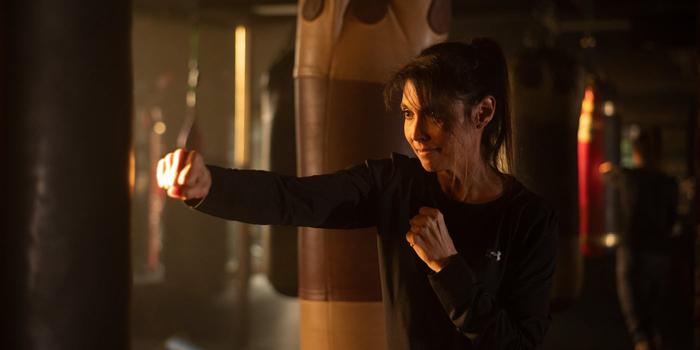
Working for the Federal Bureau of Investigation (FBI) might seem like the type of career path only accessible to those who have experience in law enforcement. According to Alexis, a Special Agent who has worked with the FBI for 25 years and is currently a recruiter for the Miami field office—that’s not the case at all.
“In order to be the best in all types of investigations, we need people with skills in different areas,” she says. “We are always looking for lawyers, accountants, engineers, cyber, chemists, and biologists, to name a few. We truly need experts in all careers to be successful in our mission.”
Here, Alexis shares what she’s looking for in new recruits, what the FBI training process is like, and how she finds work-life balance.
Tell us about your career journey. What inspired you to pursue a career with the FBI?
Having grown up around lots of brothers and male cousins, I learned early on that I wanted to prove that girls could do things that boys could do. When I was around 8 years old, I decided that my goal was to be a Special Agent in the FBI. After college, I followed my interest in the law by attending law school, passing the Maryland bar and working for the FBI in the Office of the General Counsel.
What are you responsible for in your role?
As a Special Agent in the FBI, I am responsible for helping to further the mission and priorities to protect and serve the United States. In my current role as the recruiter for the Miami Field Office, I find candidates with the critical skills and integrity to join the FBI.
What is the biggest challenge you have faced recently at work and how did you overcome it?
For about 20 years, I worked for the FBI’s Crimes Against Children program, which included sexual exploitation of children, human trafficking of children, and child predators. Many of the cases were high profile and very graphic. I found the need for balance in my life so that dark part didn’t come home with me. I covered my desk in pictures and drawings from children that I had interacted with in my cases and community outreach presentations. When I needed a break from the dark nature of the investigations, I had their artwork to focus on and restore my balance.
What skills and traits have helped you succeed in your career?
My desire to help others and to make sense of things have helped me excel as a Special Agent. In addition, having an inquisitive nature and persistence have proven to be great traits over the years as I put together my investigations.
As a recruiter, what are you looking for in potential candidates?
The FBI hires people of all backgrounds and is in need of all types of critical skills. Most people don’t even realize that they have the skills needed to be part of the FBI. I am always looking for candidates who have excelled in their lives, in their education, in their careers, and in their community involvement. My advice has been to be a “rockstar” in whatever you are good at or makes you happy, and then come make the FBI even better.
What is the training and onboarding process like for new recruits?
Once a candidate has successfully completed the hiring process, they attend new agent training for about five months at the FBI Academy in Quantico, Virginia. During this training, new recruits learn additional skills needed to be Special Agents, such as interviewing skills, evidence collection, defensive tactics, firearms training, report writing, legal foundations, and many other things. After the training, each new agent is assigned to a field office and will continue their training through on-the-job learning and with a field training agent.
What are some of the career benefits of joining the FBI?
Besides the personal satisfaction benefit, there are many great things about working for the FBI. There is a strong family culture and ability to have work-life balance. I have had time for other pursuits related to my expertise: I authored a book, a chapter in a textbook, and several articles in psychology/law enforcement journals on child exploitation. At night, I am an adjunct professor for a doctoral level abnormal sexual offenders course at a local university. The FBI even sponsored my return to school for a masters in forensic psychology, which helped my investigations and subject interviews.
As a mother of three, how do you find work-life balance?
My workouts help me find balance and allow me to have “me time” to decompress. My early morning Pilates has been great for planning out my day while exercising. I also like to incorporate exercise into my day as a stress reliever, such as using the track with colleagues to exercise after helping with physical fitness testing for Special Agent applicants.
What’s the best career advice you’ve received?
The best advice that I have received, and that I continue to give to others, is to find something that you are good at or enjoy and excel in it. Don’t study something because others tell you it would be good for you or start a career that doesn’t give you satisfaction. When you love what you do and feel good about that mission, you will be successful.